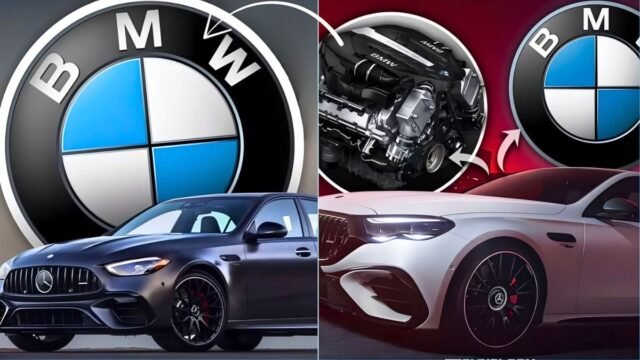Mercedes and BMW in Surprise Engine Deal Talks
In a move that could shake up the luxury car market, Mercedes-Benz is reportedly in advanced talks with BMW to source its B48 2.0-liter turbocharged petrol engine for future models. According to multiple reports, including Autocar, Car and Driver, and Manager Magazin, the two rivals are exploring a deal that would see BMW’s B48 engine under the hood of upcoming Mercedes cars by 2027.
Why Mercedes Wants BMW’s B48 Engine

Mercedes is under pressure to balance stricter Euro 7 emissions standards, growing plug-in hybrid (PHEV) demand, and rising R&D costs. Its current 1.5-liter M252 engine, co-developed with Geely in China, is limited to mild-hybrid systems and not suitable for high-performance hybrids.
By adopting BMW’s proven B48 four-cylinder engine, Mercedes gains:
- Euro 7 compliance without extra development costs
- Compatibility with plug-in hybrids and range extenders
- Flexibility to use the engine in both longitudinal and transverse layouts
- Faster rollout of new hybrid models across its line-up
Which Mercedes Cars Could Get BMW Power?
If negotiations succeed, the B48 engine could power a wide range of Mercedes models, including:
- CLA, GLA, and GLB (compact luxury cars/SUVs)
- C-Class, E-Class, and GLC (core sedans and SUVs)
- The upcoming “Little G” compact SUV, inspired by the G-Wagen
This means the next generation of Mercedes hybrids could secretly be running with BMW technology under the hood.
Where Will These Engines Be Built?
Production is expected at BMW’s Steyr plant in Austria, with discussions also pointing to a potential joint U.S. engine plant. A local facility could cut costs, avoid tariffs, and streamline logistics for both automakers.
The Bigger Picture: Mercedes Rethinks Its EV Strategy
This potential partnership comes at a critical time. Mercedes recently saw declining EV sales in the U.S. and has scaled back its electrification timeline. The company now expects only half of its sales to be electrified by 2030, compared to earlier plans of going fully electric.
In fact, Mercedes is investing €14 billion (~$15 billion) this year alone in combustion engine development, factories, and hybrid tech signaling that petrol and hybrid models will remain a key part of its future.
Key Takeaways
- Mercedes is negotiating with BMW to use the B48 2.0-liter turbo engine in future hybrid models.
- The move helps Mercedes cut costs, meet Euro 7 norms, and expand plug-in hybrid offerings.
- Possible models include the CLA, GLA, GLB, C-Class, E-Class, GLC, and the Little G SUV.
- Engine production could take place in Austria or even a new U.S. plant.
- Reflects Mercedes’ shift away from a full-electric future toward a balanced hybrid-combustion strategy.









